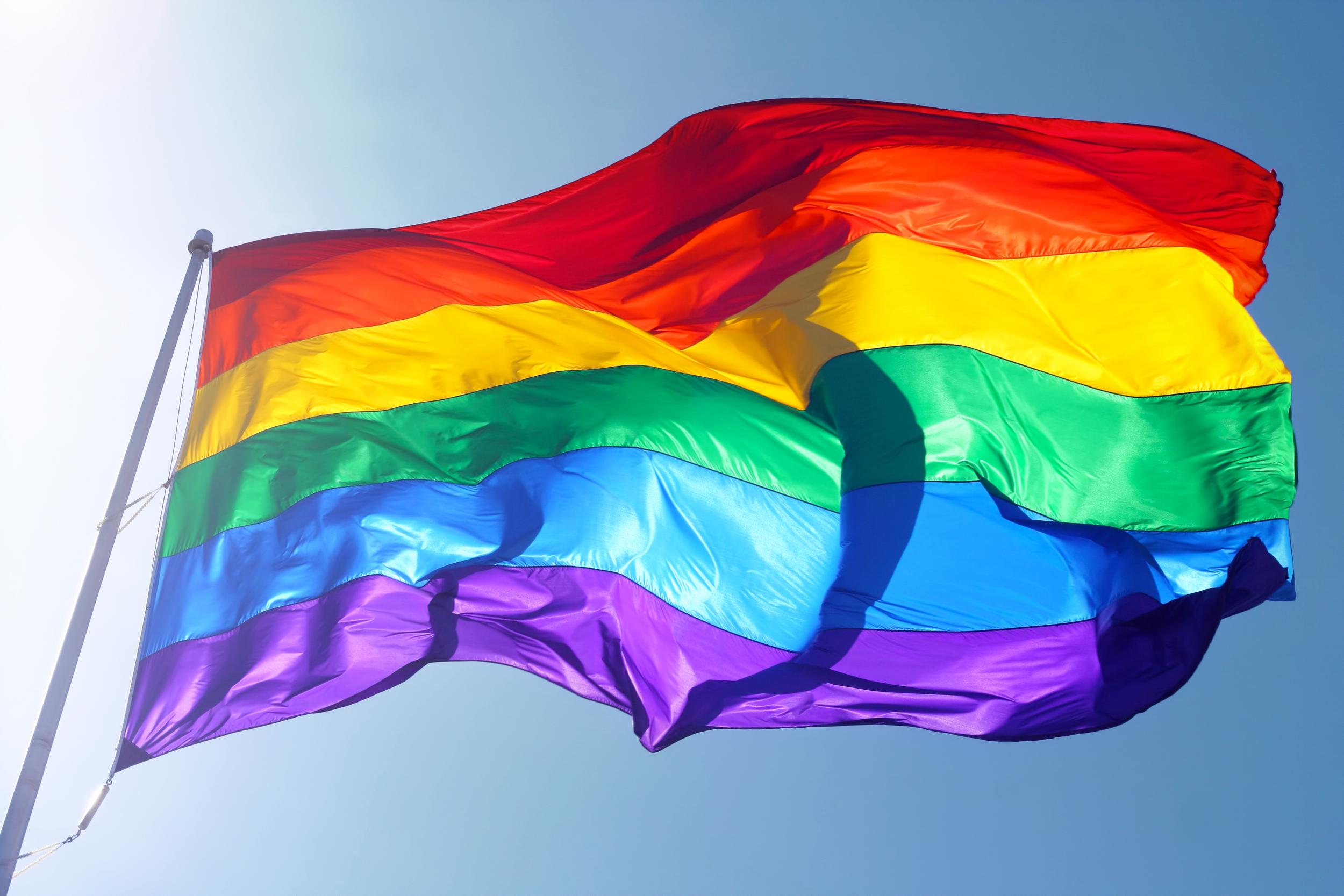LGBT+ youth four times more likely to self-harm than heterosexual peers
Scientists believe that more role models are needed for sexual-minority youth

Your support helps us to tell the story
From reproductive rights to climate change to Big Tech, The Independent is on the ground when the story is developing. Whether it's investigating the financials of Elon Musk's pro-Trump PAC or producing our latest documentary, 'The A Word', which shines a light on the American women fighting for reproductive rights, we know how important it is to parse out the facts from the messaging.
At such a critical moment in US history, we need reporters on the ground. Your donation allows us to keep sending journalists to speak to both sides of the story.
The Independent is trusted by Americans across the entire political spectrum. And unlike many other quality news outlets, we choose not to lock Americans out of our reporting and analysis with paywalls. We believe quality journalism should be available to everyone, paid for by those who can afford it.
Your support makes all the difference.Children as young as 10 who don’t identify as heterosexual have a greater probability of experiencing symptoms of depression, new research has uncovered.
Approximately one in 25 people aged between 16 and 24 in the UK identify as lesbian, gay or bisexual, according to the Office for National Statistics.
While it’s previously been discovered that young members of the LGBT+ community are more likely than those who identify as heterosexual to self-harm or experience depression, there hasn’t been a substantial amount of research pinpointing when these mental health issues appear or how they progress over the years.
In a new study published in The Lancet Child and Adolescent Health journal, researchers compared the symptoms of depression exhibited by adolescents who are in a sexual minority with those who are heterosexual.
The authors have expressed their opinion that more mentors and role models are needed for sexual-minority youth, especially if they may be experiencing discrimination or stigma.
Individuals in sexual minorities include those who identify as gay, lesbian, bisexual, not exclusively heterosexual or haven't defined their sexual orientation.
The researchers followed almost 5,000 adolescents over the course of 11 years, noting depressive symptoms at seven points between the ages of 10 and 21 with a questionnaire.
The scientists from University College London also had the participants fill out a self-harm questionnaire at the age of 16 and then again at the age of 21.
All of the participants were born between 1 April 1991 and 31 December 1992 and reported their sexual orientation at the age of 16.
The team found that symptoms of depression were far more prevalent at the age of 10 among those in sexual minorities.
Furthermore, these symptoms were then likely to become worse during their teenage years and continue as they became young adults.
The authors noted that symptoms of depression among the sexual-minority youth began to lessen from the age of 18, which they state could be due to the teens becoming more independent or making new friends.
When the scientists had the participants fill out the self-harm questionnaire, they discovered that the young people in sexual minorities were four times more likely to have reported self-harming in the previous year than those who identify as heterosexual, and more than four times as likely to have reported self-harming with the aim of taking their own lives at the age of 21.
In October 2017, a study conducted by the University of Manchester revealed that incidents of self-harm among teenage girls had risen by 68 per cent in three years.
Moreover, research published by the Children's Society in August 2018 estimated that nearly 110,000 children aged 14 across the UK may have self-harmed in the past year, with the statistic consisting of 76,000 girls and 33,000 boys.
While the study conducted by University College London was observational, the authors have stated their belief that the stigma and discrimination that many members of the LGBT+ community face may be having a negative impact on the mental health of sexual-minority youth.
"The lack of sexual-minority role models and unquestioning acceptance of rigid concepts of gendered behaviour should be challenged in schools and society at large," says Dr Glyn Lewis, professor of epidemiological psychiatry at UCL.
"We also need to ensure that doctors and those working in mental health are aware of this inequality and recognise the needs of sexual minorities."
Dr Rohan Borschmann, psychologist at the Murdoch Children's Research Institute in Melbourne, Australia, believes that healthcare professionals and those who are in charge of making health policies should take heed of the study's findings in order to take better care of the mental health of young people.
"Irrespective of the exact nature of the relationship between sexual orientation and mental health, sexual-minority young people with mental health problems might experience double stigmatisation and it is well-established that discrimination and stigma are associated with decreased health outcomes," he says.
"Reducing stigma and discrimination could, therefore, provide a pathway to primary prevention of mental disorders, by reducing the burden of disease, improving public health, and reducing health inequities."
He also explains that self-harm and suicide prevention programmes should be geared specifically towards those who are most at risk or have personal experience with those particular issues.
If you've experienced any of the issues mentioned in this article and would like to talk to someone about it, you can contact charity Samaritans by calling 116 123 or emailing jo@samaritans.org.
Join our commenting forum
Join thought-provoking conversations, follow other Independent readers and see their replies
Comments